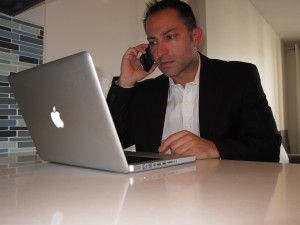“Reversing the Decline in Capital Formationâ€
Testimony of
Sherwood Neiss
Entrepreneur
Sherwood Speaks, LLC
Miami Beach, Florida
May 10, 2011
Before the
Committee on Oversight and Government Reform
United States House of Representatives
The Honorable Darrell Issa, Chairman
The Honorable Elijah Cummings, Ranking Member
Introduction:
Chairman Issa, Ranking Member Cummings and members of the Committee, thank you for holding this hearing today and allowing me to share an entrepreneur’s perspective on improving capital formation through regulatory modernization. My intention is to explain why outdated securities laws — put in place before the Internet age — need to be modernized and overhauled, and how these reforms can boost our struggling economy. By revamping the Security and Exchange Commission’s (SEC’s) position on solicitation and accreditation, we can open the doors to small business growth and prosperity. Allowing for an exemption for Crowd Fund Investing, which includes protections for investors, will spur innovation among your constituents, create jobs, increase consumer spending, and reinvigorate our economy. Continue reading



